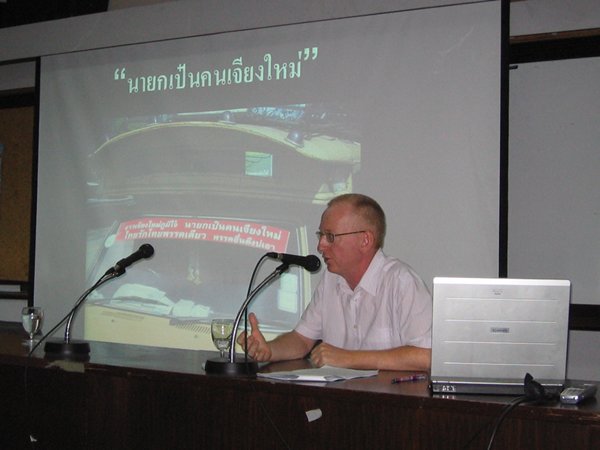Earlier today I presented my paper on the “rural constitution” to a seminar in the Political Science Faculty at Chulalongkorn University (thanks to MAIDS for hosting the seminar). The reception was friendly. It was good to see Ji Ungpakorn there and I appreciated his comments about the complexity of political patronage in rural areas. Supporters of Thailand’s coup have been quick to disparage patronage system without understanding the social and cultural complexity of patron client relations and their embeddedness in local systems of political evaluation.
I was asked to comment on local people’s reaction to the argument that Thaksin had behaved inappropriately towards the king. I answered that among the many criticisms that local people expressed about Thaksin and his government this is not one that I had heard. Nor was there any sense in which those who did strongly support Thaksin saw this as representing a lack of loyalty to the monarch. “Thaksin versus the king” may be a conveniently simple catch cry for those committed to discrediting his government, but it is not one that had much resonance in the rural area of Thailand where I worked.
There was a reporter from The Nation there, so it will be interesting to see if the “rural constitution” finds it’s way into newsprint. It would be a nice contribution to The Nation’s fearless defense of the democratic rights of rural people!
Some colleagues here in Thailand are preparing a Thai language summary of my paper. When this is ready I will post it to New Mandala.
 Facebook
Facebook  Twitter
Twitter  Soundcloud
Soundcloud  Youtube
Youtube  Rss
Rss 